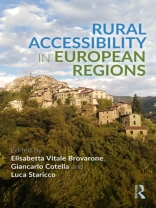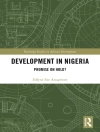Rural Accessibility in European Regions explores concepts, methodologies, and case studies dealing with accessibility in European rural areas, embracing cultural, socioeconomic, and governance aspects that play a key role for accessibility policies in rural and peripheral areas.
In the first part, the chapters introduce rural accessibility challenges, present a methodology to support policymaking for enhancing accessibility in rural areas and apply it to case studies in the United Kingdom, Italy, Spain, and Sweden. In the second part, additional cases from Poland, Germany, Greece, and France provide alternative approaches to the topic, and a research agenda is proposed. Overall, the book contributes to a conceptualisation of rural accessibility, addressing challenges and potentials for rural accessibility and urban–rural relationships in European regions.
The book fills a gap in the existing bodies of literature on accessibility and on rural planning, bridging the two spheres with an interdisciplinary approach to rural accessibility for mobility, planning, and regional studies.












